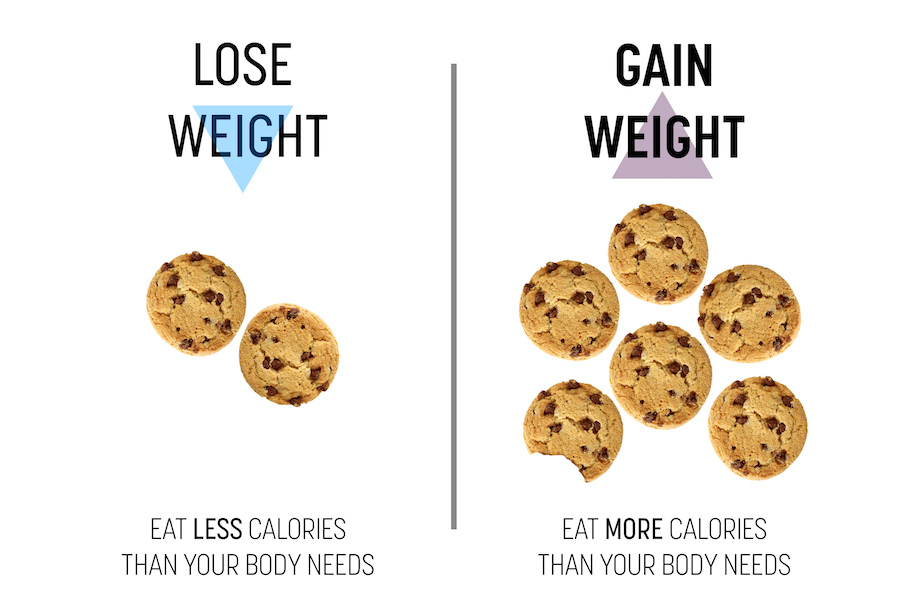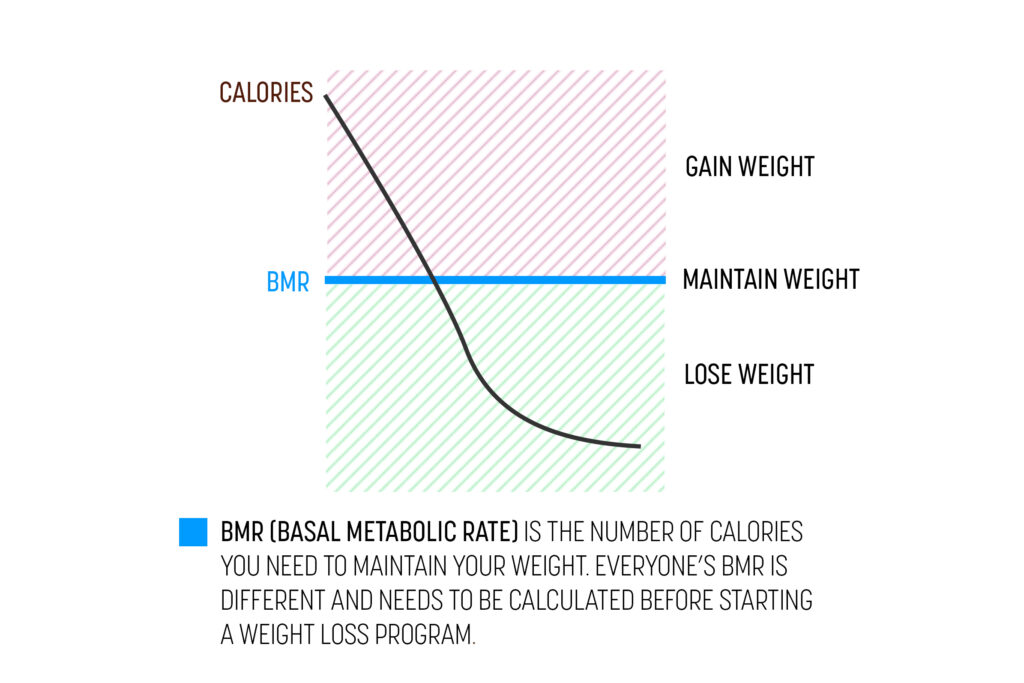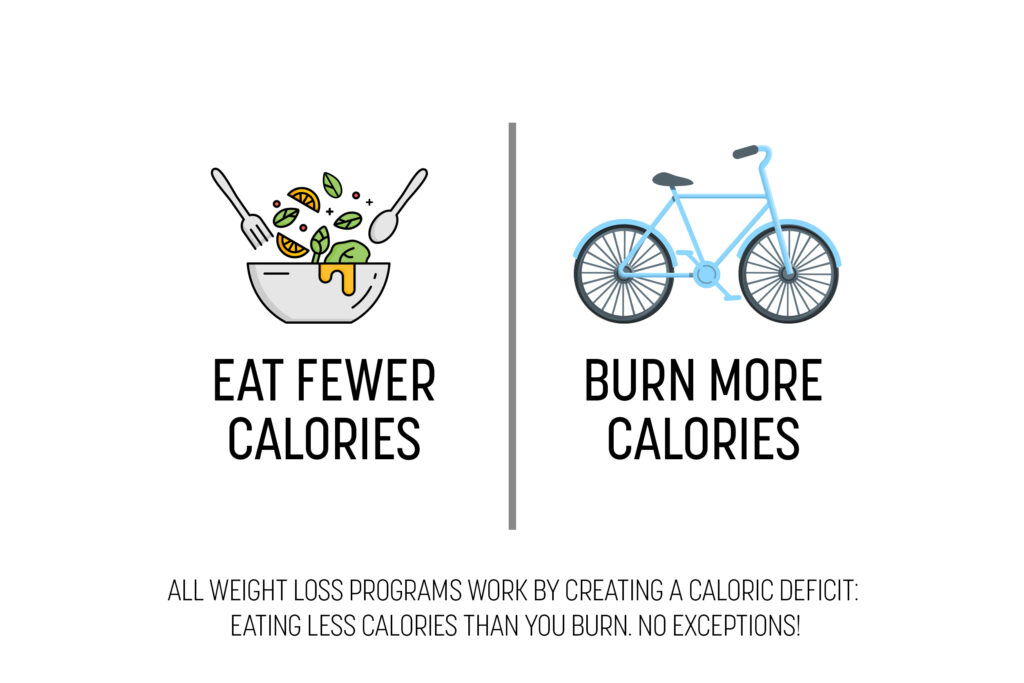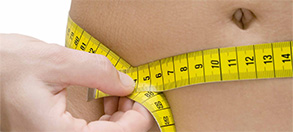Consultations offered at our three convenient locations in Houston, Katy, and Webster, TX

Calories are units that we use to measure the amount of energy in food. When you eat more calories than your body needs, it stores this excess energy as fat so that it can access it later. That’s what fat is for! It’s your body’s way of storing extra energy so that it doesn’t go to waste.
Eat more calories than your body needs and you will gain weight. Eat less calories than you need and you will lose weight. It doesn’t matter how many of these calories come from carbohydrates, fat, or protein – eat more than you need and you’ll gain weight. Eat less than you need and you’ll lose weight.

When you eat less calories than you need to maintain your current weight, we say you are in a calorie deficit. If you are eating more, we say you are in a calorie surplus, and if you are eating just enough calories to not lose or gain weight then you are at maintenance calories.
This is how all diets work. It doesn’t matter whether you are counting calories, counting carbs, doing Atkins or the keto diet – if you eat more calories than you need, it doesn’t matter how many of those calories were carbs, they’ll still be stored as fat.
That doesn’t mean these diets are bad. Each of these diets represents (among other things) a different way to deal with hunger. If you are eating low carb, for example, you are generally eating high fiber and high protein foods. This results is less feelings of hunger even at lower calories, as well as lower overall blood sugar.
Basal Metabolic Rate (BMR)
So how do you know how many calories your body needs? Everyone is different. While the FDA estimates that the average person needs 2,000 calories per day, that may not be true for you. Here at Houston Weight Loss Clinic, one of the first things we do as part of your first visit is to help you calculate your BMR, or basal metabolic rate. This is the average number of calories you need each day based on a number of factors including height, weight, body composition and activity level.
BMR is also sometimes called your maintenance calories.

As we mentioned earlier, all weight loss programs work by creating a caloric deficit. We’ve already walked over one method of losing weight – eating fewer calories than your BMR. But there’s also another way of creating a caloric deficit, and that’s increasing you BMR (burning more calories) by increasing your activity level.
Makes sense, right? You can eat less calories, or increase the amount of calories your body needs through exercise. Either method can put you in a caloric deficit, as long as your caloric intake is less than your BMR.

Why not both? You can absolutely do both! In fact, to lose weight most efficiently, you should always use a combination of both diet and exercise. This is the healthiest and fastest way to lose weight, and as an added benefit will help maintain muscle mass (more on that later).
You should know that, unless you’re a world-class athlete, it’s very difficult to lose weight through exercise alone. Most workouts may only burn a few hundred calories. A 12-minute mile will only burn around 200 calories, depending on your height, weight, and age – that’s about two bananas.
While the theory is very simple, actually putting this into practice can be more difficult. With hard work and consistency, you can lose weight on your own. However if you find that you’re struggling with hunger, prescription appetite suppressants may be a solution for you.
Conditions that Can Affects Weight Loss
There are some conditions (like hypothyroidism) or certain medications that can make weight loss difficult, or even cause weight gain. We test for hypothyroidism as part of our initial bloodwork.
Be sure to discuss any medications you’re taking with your doctor or nurse practitioner before starting a weight loss program.



